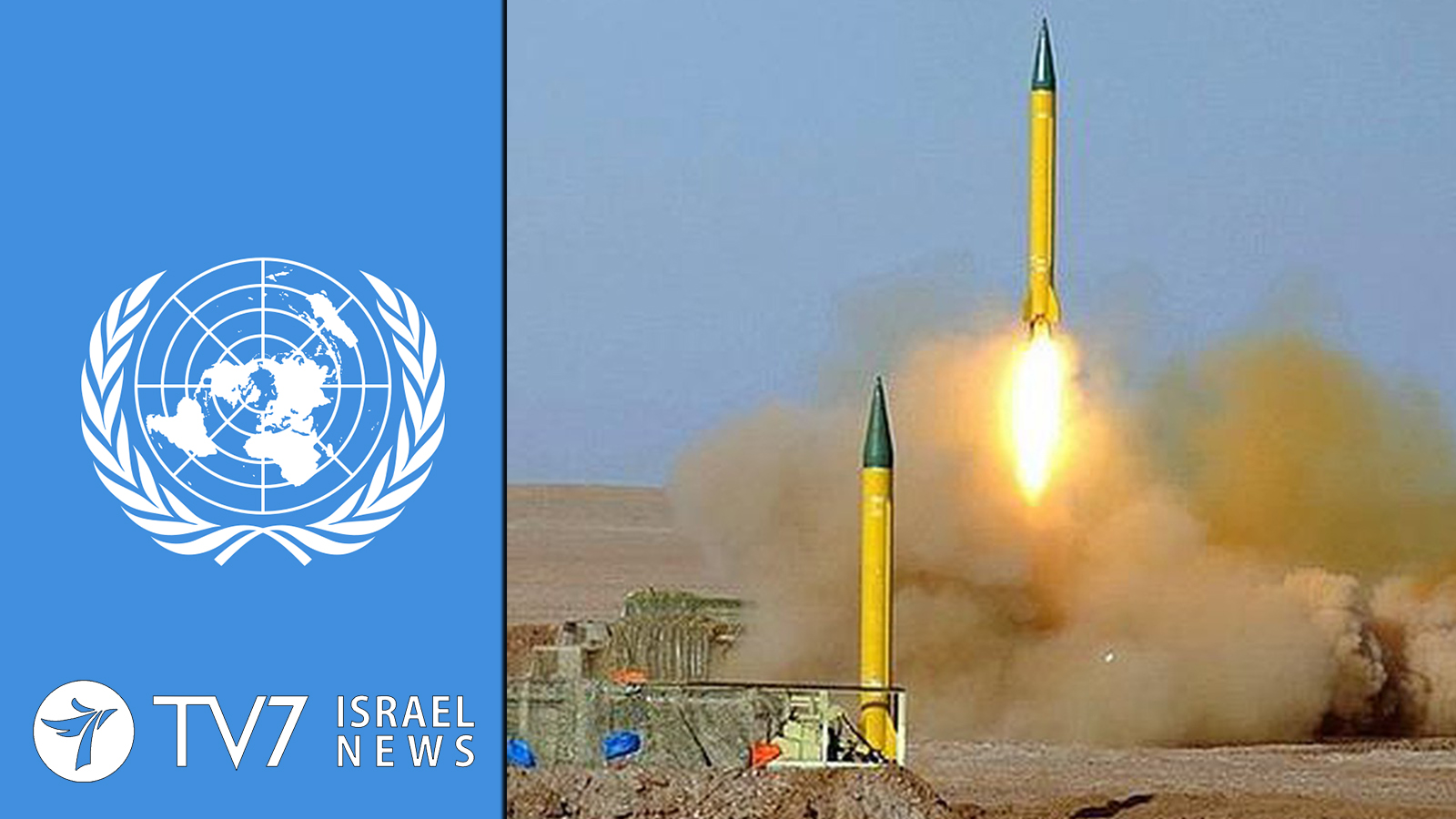The United Kingdom, France and Germany are accusing Iran of breaching U.N. Security Council Resolution 2231, after footage released on social media earlier this year purported to show a previously unseen flight test of a new Shehab-3 ballistic missile that is capable of carrying a nuclear payload.
In a letter to the U.N. Secretary General Antonio Guterres the three European powers insisted that the Islamic Republic’s ballistic missile activity is “inconsistent” with the council resolution that effectively endorsed the Joint Comprehensive Plan of Action (the 2015 nuclear agreement with Iran).
According to the joint European statement, an Iranian test-launch of its Shehab-3 medium range ballistic missile earlier this year was “equipped with a maneuverable re-entry vehicle.” According to the letter, “the Shahab-3 booster used in the test is a Missile Technology Control Regime category-1 system and as such, is technically capable of delivering a nuclear weapon.”
The three European nations further noted that a 2015 report by the International Atomic Energy Agency on possible military dimensions of Iran’s nuclear program concluded that “extensive evidence indicated detailed Iranian research in 2002 (to) 2003 on arming the Shehab-3 with a nuclear warhead.”
It is important to explained that according to Resolution 2231, Paragraph 3 of Annex B, “Iran is called upon not to undertake any activity related to ballistic missiles designed to be capable of delivering nuclear weapons, including launches using such ballistic missile technology.” In spite of the clear wording of the resolution, Iran vehemently rejected any limitations on its Ballistic Missiles project – which is under the jurisdiction of the Islamic Revolutionary Guards – since the day the resolution was adopted on the 20th of July 2015. Less than two months after the resolution was adopted, the Islamic Republic conducted numerous testing of its ballistic missile capabilities, including on the 8th of March 2016, when it test-launched two ballistic missiles emblazoned with a phrase in Hebrew that read: “Israel must be wiped out.”
In response to this report, Israeli Foreign Minister Yisrael Katz released a statement, saying: “We welcome the letter presented by France, Germany, and the United Kingdom, which states that Iran is developing missiles capable of carrying a nuclear payload, while violating UN Security Council resolutions. This confirms what Israel has been claiming all along. Only an effective military threat posed against Iran will deter and curb its aggression.”
Turning now to Tehran, where Iranian president Hassan Rouhani called on the country Islamic Revolutionary Guards to release any innocent civilians that were detained during the two weeks of violent protests that swept the country. The violent unrest, which began on November 15 after the government abruptly raised fuel prices by as much as 300% spread to more than 100 cities and towns and quickly turned political as young and working-class protesters called for an end of the Ayatollah regime.
With hundreds if not thousands killed and thousands more incarcerated by the Islamic Revolutionary guards; President Rouhani called for mercy of those he classified as “not guilty” and urged for their immediate release, saying “But those who were not guilty in this regard, or those whose crime is not major, they have to be treated with mercy and they should be released.”
According to the Iranian President who serves at the pleasure of the Islamic Republic’s supreme leader Ayatollah Ali Khamenei; the recent unrest that plagued the Islamic Republic was a pre-planned effort orchestrated by foreign elements. “The planning had been conducted more than two years ago, and they had planned for these actions two years ago. They wanted to do the same actions last year but the time was not right. Their plan for this year was for late December close to the election. But when this plan (of increasing fuel price) was declared, their masters from overseas told them that it is a proper situation to act on and took them to the streets,” Rouhani said.
While the Iranian president did not give any details on the referred to foreign conspiracy, he sought to lay full blame on the United States for crippling his country’s economy. Nevertheless, in spite of Iran’s repeated rejection of dialogue with the United States, Rouhani insisted that “We haven’t closed the windows of negotiations. If they (the U.S.) are ready to lift the sanctions, we are ready to talk and negotiate, even at the level of heads of the 5+1 heads countries (major powers) and we have clearly declared that before.”
It is important to note that the United States, under President Donald Trump, has ruled out lifting any sanctions on the Islamic Republic unless Iran agrees to stricter limitations on its nuclear program, an immediate end to its ballistic missile program in addition to the instant altering of Tehran’s expansionist policy that is clearly projected in numerous regional proxy wars.
